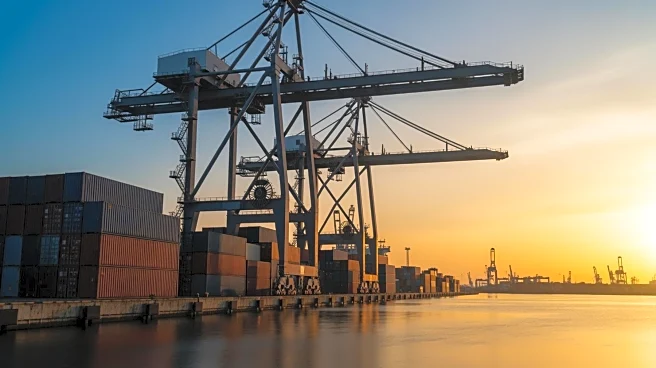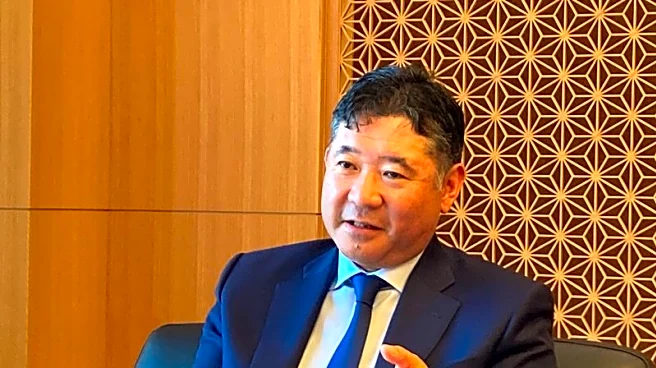What's Happening?
Maersk, a Danish global shipping company, has signed a 30-year lease agreement with Bangladesh to manage a new container terminal at Chattogram, the country's largest port. APM Terminals, a subsidiary of Maersk, will invest approximately $550 million
over the next three years to develop the site. This strategic move is significant for Bangladesh, which is the world's second-largest clothing exporter and relies heavily on the port for its export activities. The agreement is seen as a new beginning for Bangladesh, opening doors to larger and more diversified investments. Additionally, the government is in discussions with Medlog SA, a subsidiary of the Mediterranean Shipping Company, for an inland terminal near Dhaka.
Why It's Important?
The lease agreement with Maersk is crucial for Bangladesh's economic growth and development. By enhancing the capacity and efficiency of the Chattogram port, Bangladesh can strengthen its position in the global export market, particularly in the textile industry. The investment by Maersk is expected to boost infrastructure development and create job opportunities, contributing to the country's economic stability. Furthermore, the involvement of international companies like Maersk and MSC indicates growing confidence in Bangladesh's investment climate, which could attract more foreign direct investment in the future.
What's Next?
With the lease agreement in place, APM Terminals will begin the development of the Chattogram container terminal, focusing on infrastructure improvements and operational efficiency. The government of Bangladesh may continue negotiations with other international companies to further enhance its port facilities and logistics capabilities. As the project progresses, stakeholders will monitor its impact on trade volumes and economic growth. The success of this initiative could lead to additional partnerships and investments in Bangladesh's logistics and transportation sectors.
Beyond the Headlines
The development of the Chattogram port terminal by Maersk could have broader implications for regional trade dynamics. As Bangladesh enhances its port facilities, it may become a more competitive player in the South Asian logistics market, potentially influencing trade routes and partnerships. The project also underscores the importance of strategic infrastructure investments in driving economic development and fostering international collaboration.

















